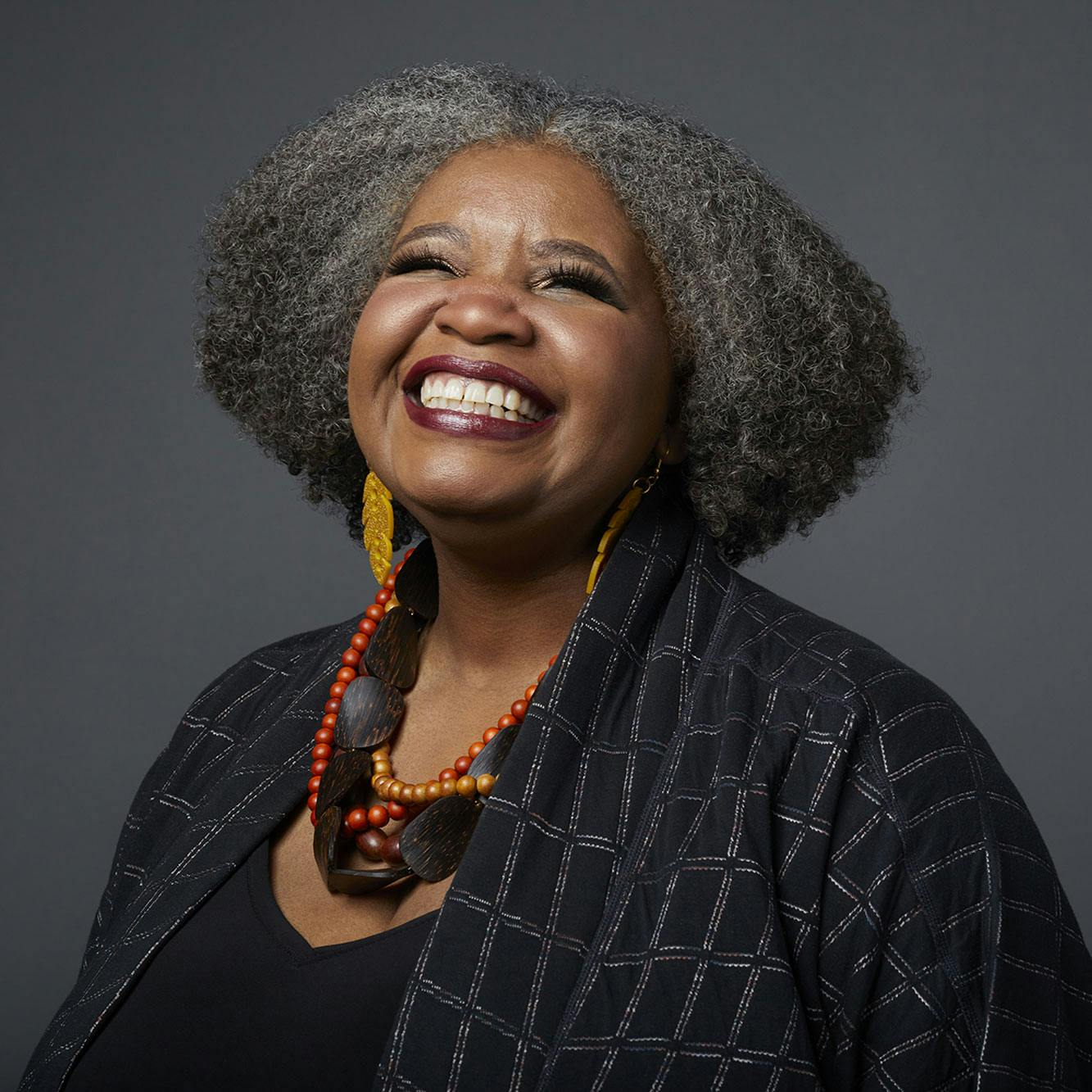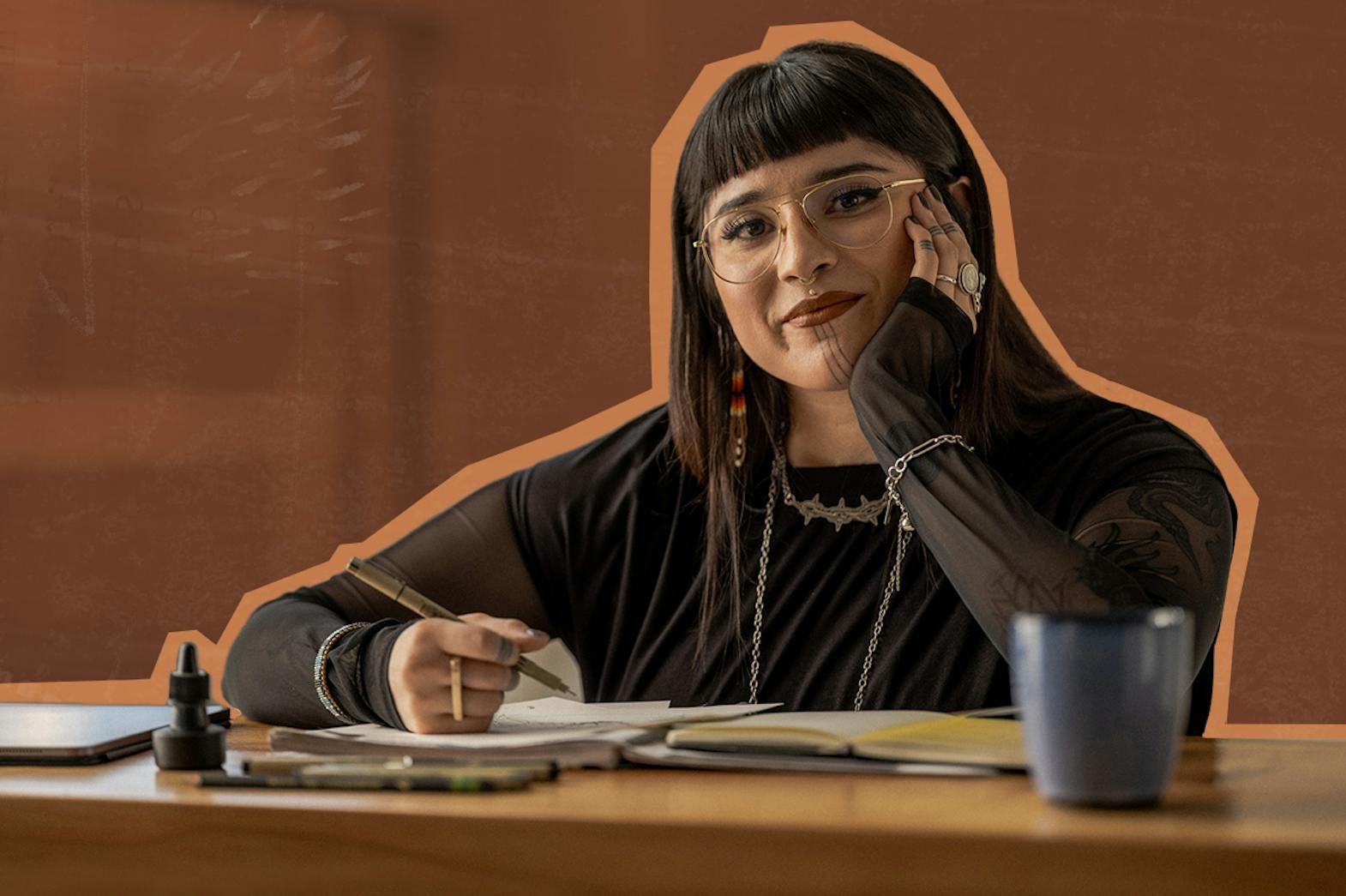Dr. Elizabeth “Dori” Tunstall is recognized globally for her ground-breaking work in decolonizing design and amplifying underrepresented voices within the design community. Her research explores the cultural, social, and historical contexts that shape design practices, seeking to create spaces where diverse perspectives thrive and contribute to meaningful innovation.
As an accomplished scholar, Dori holds a Ph.D. in Anthropology from Stanford University and has served as the former Dean of Design at the Ontario College of Art and Design University (OCAD University). Throughout her tenure, she has championed initiatives to promote diversity, equity, and inclusion within design education, challenging traditional norms and advocating for a more representative and inclusive design field. You can learn more about Dori Tunstall’s work in her book, Decolonizing Design: A Cultural Justice Guidebook, at https://mitpressbookstore.mit.edu/book/9780262047692.

Hannah Cole:
Could you share a bit about what motivated you to focus on decolonization and diversity within the design space?

Dr. Dori Tunstall:
The core of what I am is a design anthropologist, but I was always a weird anthropologist. I’ve always paid attention to the relationship between form, content, and context, but I see context as culture. Anthropology is a field that's had to undergo a decolonizing journey. Design has not had the same self-reflective processes in terms of its impact on people and culture in the same sort of way. Design is at the forefront of how we make our society.
The goal of design is to be able to create conditions for liberatory joy for our bodies for our communities. What I'm seeking is engaging with old ways of knowing that are steeped in culture and relationships to the land and then bringing them to the forefront in new ways that will free us. How do we design in ways with the intentionality of liberatory joy? Are we connected to all the things around us? How do we connect to other communities through mutually beneficial exchange?
Hannah Cole: What does decolonization mean to you, and how does it manifest in your work?
Dr.Dori Tunstall: I like the term ‘solidarity.’ If you're not talking about Indigenous sovereignty, if you're not talking about the land, then it's not about decolonization. Design comes into play because we give tangible meaning to the things that we make. And the experience of decolonization is one that must be made tangible. Design decolonization provides a pathway by which we can begin to build and design a world that prepares us for Indigenous sovereignty as the land. There are many different things that you have to do to be prepared for the present and future reality.
It's about understanding yourself, having that humility, in many ways to understand that it's not about you making lots of mistakes in that relationship building, but also understanding that if someone is calling you out, they're doing so from a position of love because they're telling you the things that need to change in order for you to have a harmonious relationship. It’s the work of making amends.
Put design into a new context around Indigenous ways of knowing and being. Give people a journey through their own knowledge and skills to connect and reconnect to the land and the people in it.
H: What motivated you to write "Decolonizing Design" and delve into the intersection between design and colonialism?
Dr. T: Decolonizing Design: A Cultural Justice Guidebook is the book of my life because it culminates all those different experiences with an understanding of looking at design as the making of things, then understanding how colonization has interrupted the making of things for specific cultures by design. I wanted this book to become a model to show you from the perspective of someone like myself, a multi-generational African American who had lived in this Canadian context and this Australian context for a really long time. Who is being in solidarity with the movement towards Indigenous sovereignty?
H: Do you have any other advice for designers who are interested in adopting a more inclusive approach and practicing more liberatory joy?
Dr. T:
You Have to Understand Who You Are
You have to know yourself to know what to offer to someone else and what to receive from someone else. What is your positionality on Indigenous sovereignty, and what is your position in the decolonizing journey? Create a process to understand what it is that you're seeing and feeling in your histories, and from there, I find that collaboration happens easily and beautifully. And the beautiful thing that begins to happen is that it doesn't become transactional. It truly becomes relational in the joy they get from being connected with you.
Investigate Different Histories & Possibilities of Making
Investigating not with a sense of abandonment but with a sense of the context in which things have been made and how it relates to the context you find yourself in. What are the permissions that are required to be in exchange, or things that may inspire you?
Find What Brings You & Your Community Liberation
Connecting to those things through your talent, producing them in a tangible way so people can interact, engage, debate, and come together around them. Being able to lean into the superpower of design, which is that ability to be a connection for a wide variety of people and all living things and things that are probably not even living when you think about how we engage with the materiality of the world and the things we create.

Some identities are really steeped in trauma. You cannot be irresponsible to open them up without providing them a pathway to get help if they need to repack or reimagine things. Identities must be handled with care and understanding.
H: Are there specific metrics or indicators that can be used to measure the success of decolonized design practices in terms of their societal impact?
Dr. T: Is there a critical mass of Indigenous presence? Are we tearing down the institutional structures that make them feel they don't belong, make them feel disrespected, or make them feel exploited?
We can see communities and institutions beginning to give land back. That is an important indicator because it speaks to addressing the economic, social and cultural justice aspects of what it means to remunerate the land to Indigenous. It’s recognizing how much humility and humbleness we have in relationship to ways of knowing and being that might be different from what we’ve grown up with. It’s creating relationships of trust and understanding. It’s about making amends. Their satisfaction with being in a community, within an institution, or within a group, is your true metric.
H: Looking ahead, what do you hope to see in terms of the future of decolonized design practices and their impact on global design?
Dr. T: A lot of the reasons why we are in some of the cultural, social, economic, and environmental crises that we are in is because a lot of white people can still be manipulated for wanting to maintain this position of white supremacy, which is acting against their self-interest. That's a future trajectory that is global and important.
How do we build critical mass within our institutions to be able to change them and the people who are guiding them, leading them, and connecting with communities through them? How do you build relationships of mutually beneficial exchange? These are things that I see as important to the future, addressing the issues of white supremacy in a direct way creating space to bring true diversity into organizations and institutions and continuing to do their work to make the future present in a decolonial way.
In partnership with CalArts Extended Studies, Dori Tunstall Inc. will be offering three online summer courses:
- 1
Creative Explorations of Whiteness Without White Supremacy (May 22- May 29)
This course uses both creative and analytical methods to help white or white adjacent peoples to cultivate nuanced identities of whiteness without white supremacy values.
https://extendedstudies.calarts.edu/search/publicCourseSearchDetails.do?method=load&courseId=1542719&selectedProgramAreaId=1529901&selectedProgramStreamId=1543365 - 2
Hiring for Decolonization and Cultural Justice in the Creative Industries (June 4-July 2)
This course offers multiple strategies for developing the cultural competency to hire and retain employees across a variety of structurally marginalized identities.
https://extendedstudies.calarts.edu/search/publicCourseSearchDetails.do?method=load&courseId=1542729&selectedProgramAreaId=1529901&selectedProgramStreamId=1543365 - 3
Business Transformation for Cultural Appreciation, Not Appropriation (July 10-Aug 7)
This course offers conceptual, practical, and self-evaluative frameworks for understanding the relationship between Colonization and cultural appropriation and how one transforms one's practices to embrace cultural communities with appreciation and respect.
https://extendedstudies.calarts.edu/search/publicCourseSearchDetails.do?method=load&courseId=1542709&selectedProgramAreaId=1529901&selectedProgramStreamId=1543365




